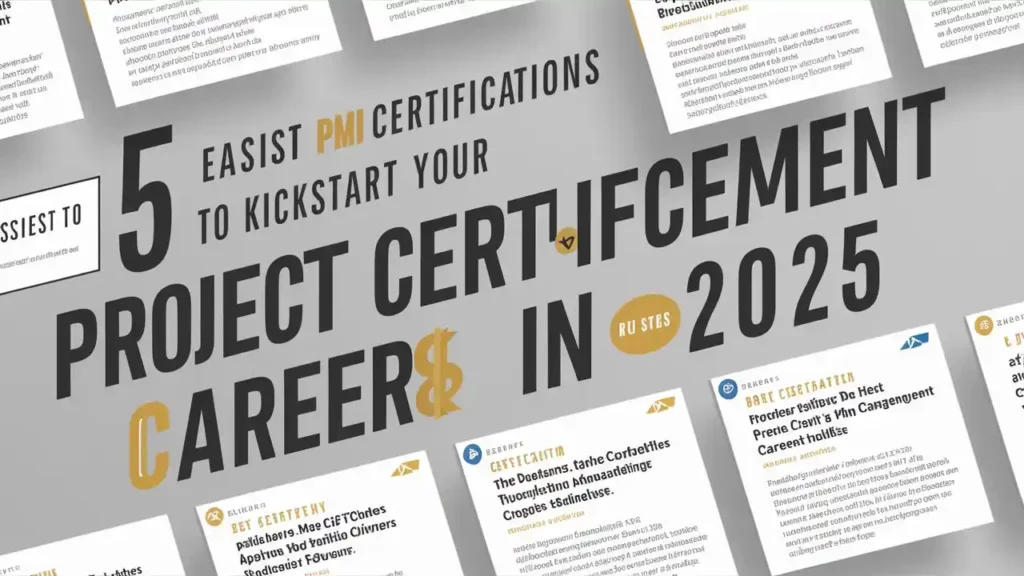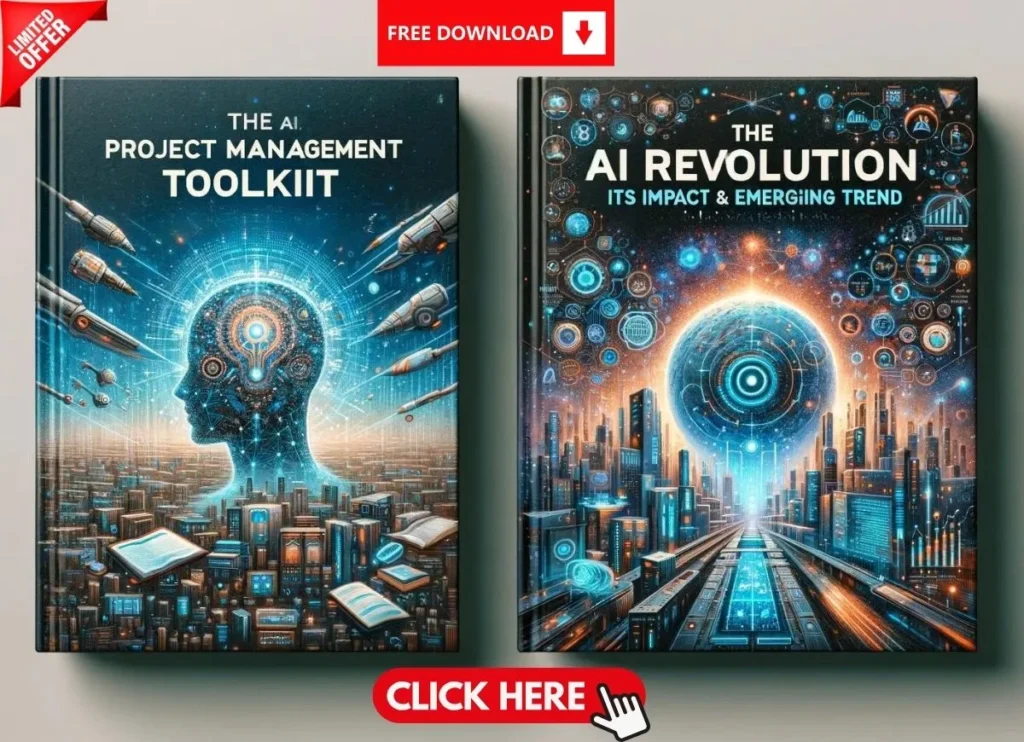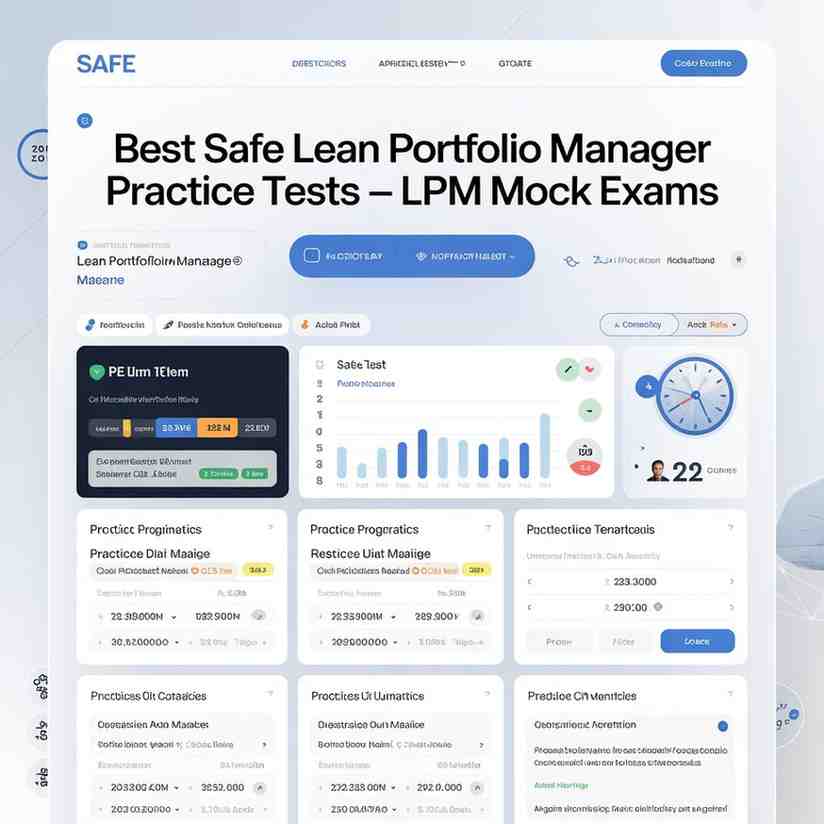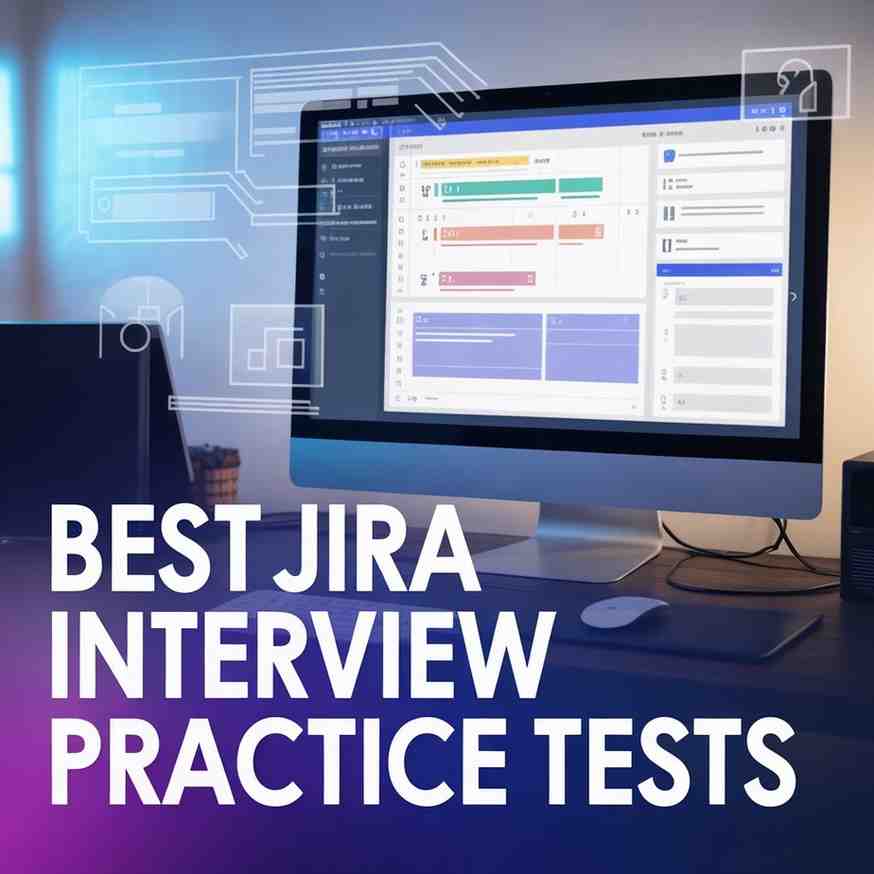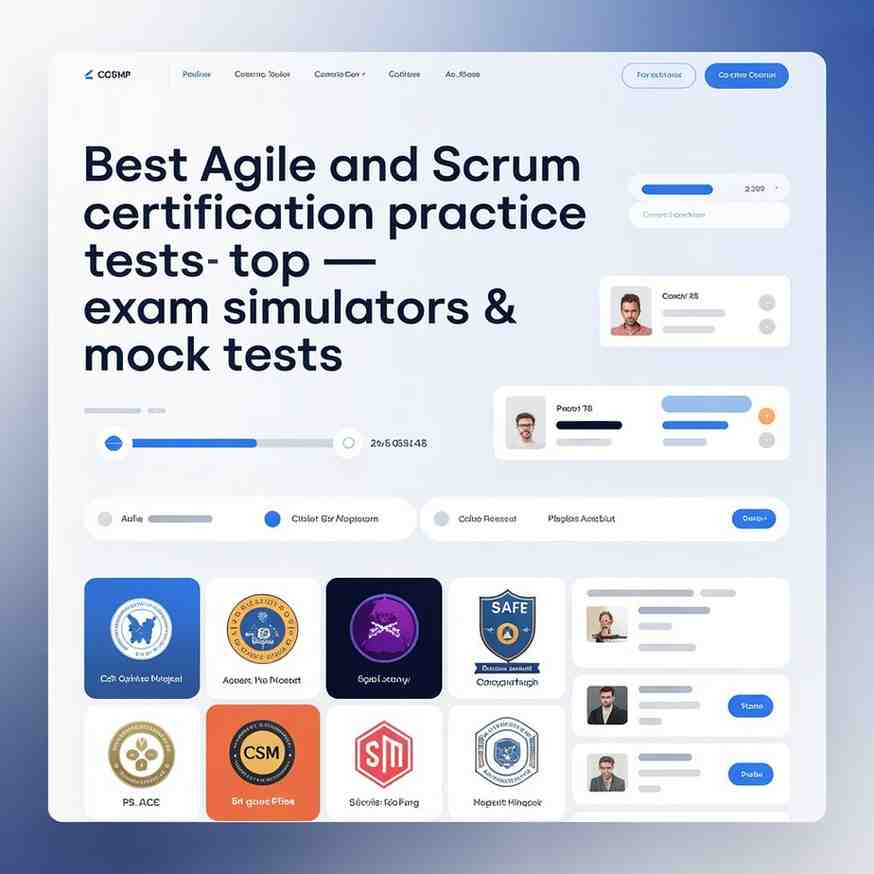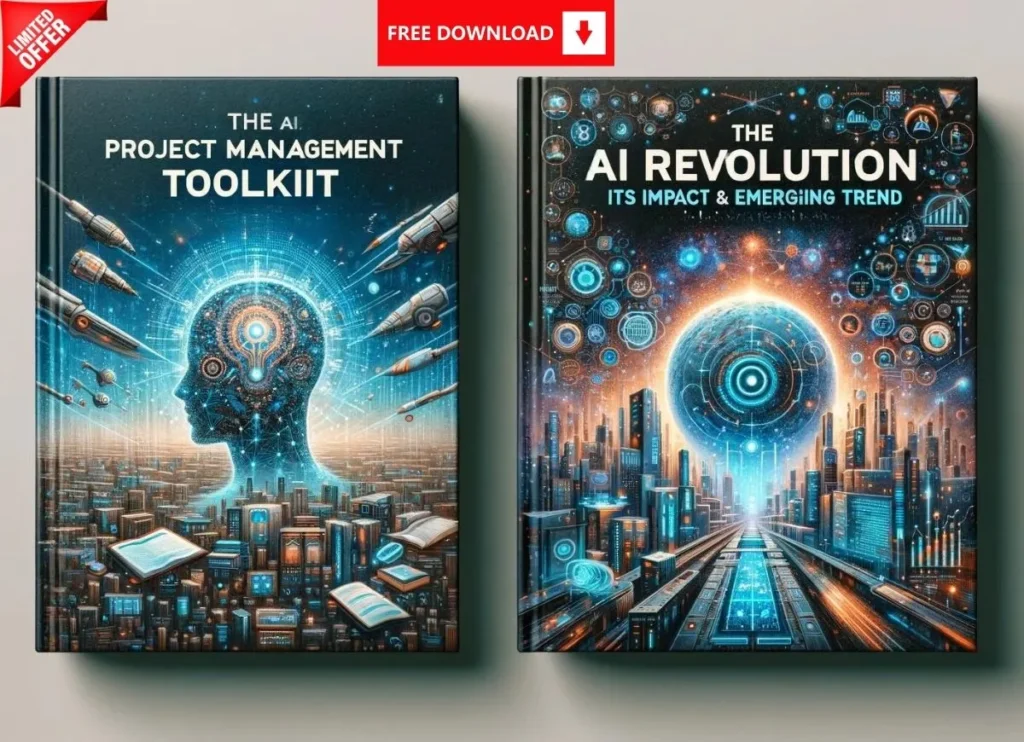Introduction
Did you know that 97% of organizations believe project management is critical to business success, yet only 25% of professionals hold a formal certification? If you’re a seasoned professional with 8–30 years of experience looking to formalize your expertise or pivot into project management, the Project Management Institute (PMI) offers a range of PMI Certifications to suit your needs. While the PMP certification is the gold standard, its rigor can feel daunting—especially if you’re balancing a busy career or transitioning from another field.
Luckily, there are easiest PMI certifications for beginners that deliver credibility, foundational knowledge, and career momentum with less initial investment. This guide is tailored for professionals like you—experienced leaders, coordinators, or specialists with transferable skills—who want to break into project management or enhance their resumes without diving straight into PMP. We’ll explore the 7 easiest PMI Certifications for 2026, their requirements, and how they can propel your career forward.
Actionable Tip: Start small—choose a certification that aligns with your current experience level to build confidence and skills fast. Ready to find your perfect fit? Let’s dive in!
Understanding the PMI Certifications Landscape
What Is PMI and Why It Matters
Overview of PMI’s Certification Ecosystem
PMI’s portfolio includes PMI Certifications for every career stage:
- Entry-Level: CAPM, PMI Project Management Ready
- Mid-Level: Disciplined Agile Scrum Master (DASM), PMI Professional in Business Analysis (PMI-PBA)
- Advanced: PMP, PMI Agile Certified Practitioner (PMI-ACP)
- Micro-Credentials: Stackable, bite-sized certifications for specific skills
For seasoned professionals, starting with an easier PMI Certification can bridge gaps in formal training while leveraging your existing leadership experience. Let’s explore the simplest options.
The 5 Easiest PMI Certifications to Obtain
1. Certified Associate in Project Management (CAPM)
Why It’s Easy: CAPM is PMI’s entry-level certification, requiring no prior project management experience—just a high school diploma (or equivalent) and 23 hours of project management education.
Key Features:
- Focuses on foundational knowledge (e.g., PMBOK Guide processes).
- 150 multiple-choice questions, 3-hour exam.
- No situational judgment—purely knowledge-based.
Pro Tip: Online courses like PMI’s CAPM prep or Udemy’s offerings can fulfill the education requirement in a weekend—perfect for how to get PMI certification with no experience.
2. PMI Project Management Ready
Why It’s Easy: Aimed at students and early-career professionals, PMI Project Management Ready has no prerequisites beyond a desire to learn project management basics.
Key Benefits:
- Covers tools like MS Project and foundational concepts.
- Short, flexible prep time (1–2 months).
- Ideal for resume-building without exam pressure.
Example: A mid-career operations specialist used this credential to signal interest in project management, landing a hybrid role within six months.
3. PMI Professional in Business Analysis (PMI-PBA) – Entry-Level Insights
Additional Insight: If you’ve spent years gathering requirements or solving business problems, this could align with your skill set as one of the best PMI certifications for career growth.
4. Disciplined Agile Scrum Master (DASM)
Why It’s Easy: Requires no prior experience—just a 14-hour training course (offered by PMI).
Key Features:
- Focuses on Agile fundamentals and Disciplined Agile toolkit.
- Perfect for professionals transitioning to Agile environments.
Pro Tip: Pair this with CAPM for a dual-certification edge in under 6 months.
5. Micro-Credentials: A Bite-Sized Option
Why They’re Easy: PMI’s micro-credentials (e.g., Risk Management, Scheduling) are short, focused courses with no exams—just completion certificates.
Benefits:
- Stackable toward higher PMI Certifications.
- Quick wins for busy professionals (1–2 weeks per credential).
Example: A 20-year IT veteran earned the “Project Scheduling” micro-credential to refresh skills, later applying credits toward PMP.
And to ensure success, Gururo’s PMI practice tests help you sharpen your knowledge and boost your confidence before exam day. Practice smart, pass fast, and power up your PM career!
Certification Requirements and Preparation
Breaking Down CAPM vs PMP
- CAPM:
- Education: 23 hours (online or in-person).
- Experience: None required.
- Exam: 150 questions, 3 hours.
- PMP:
- Education: 35 hours.
- Experience: 36 months leading projects (or 60 with no degree).
- Exam: 180 questions, 4 hours, scenario-based.
Insight: CAPM vs PMP requirements 2026 shows CAPM is ideal if you’re new to formal project management, while PMP suits those with hands-on leadership experience.
Study Time and Resources for Success
- CAPM: 2–3 months, 5–10 hours/week. Use PMI’s CAPM Handbook, practice exams, and PMBOK Guide (7th Edition).
- PMI Project Management Ready: 1–2 months, self-paced. PMI’s free resources suffice.
- DASM: 2 weeks (course) + 1 month of prep. PMI’s Disciplined Agile training is key.
Pro Tip: Join PMI’s online community for study groups tailored to experienced professionals—your peers can share shortcuts!
Career Impact and Long-Term Growth
Study Time and Resources for Success
Stat: PMI-certified professionals earn 23% more on average (PMI Salary Survey, 2024).
Study Time and Resources for Success
- PMP: Pursue after 3–5 years of project leadership—perfect for traditional or hybrid roles.
- PMI-ACP: Ideal if you’re in Agile environments (e.g., tech, software development).
Example: A 15-year operations manager used CAPM to enter project management, then earned PMP two years later for a senior PM role.
Success Stories: Real-World Certification Journeys
Case Study 1: From Coordinator to Project Management
Journey: She earned CAPM in 3 months, landed a project coordinator role, and used two years of experience to qualify for PMP.
Outcome: A 30% salary increase and a tech PM position.
Takeaway: CAPM is a low-risk entry point with high ROI among the easiest PMI certifications for beginners.
Case Study 2: Agile Transition with DASM
Journey: He completed DASM in 6 weeks, applying Agile principles to a software rollout.
Outcome: Promoted to Scrum Master with a 15% raise.
Takeaway: DASM leverages existing experience for quick wins in Agile, making it one of the best PMI certifications for career growth.
Conclusion: Your Next Step in Project Management
Whether you’re formalizing decades of leadership experience or making a career pivot into project management, earning a PMI certification is a powerful way to validate your expertise, expand your opportunities, and boost your earning potential. The 7 easiest PMI Certifications—CAPM, PMI Project Management Ready, DASM, PMI-PBA, and micro-credentials—offer accessible entry points for professionals at various stages of their careers.
For seasoned professionals with 8–30 years of experience, these certifications are not just about learning project management fundamentals—they are about leveraging your existing skills and positioning yourself for higher-level project leadership roles.
Why Taking Action Now Matters
- Market Demand is Growing: Organizations are increasingly recognizing the importance of project management, and certified professionals have a competitive edge. According to PMI’s Job Growth & Talent Gap report, employers will need 25 million new project management professionals by 2030.
- Certifications Increase Salary Potential: PMI-certified professionals earn 23% more on average, making these credentials a worthwhile investment.
- You Can Start Small and Scale Up: Certifications like CAPM or DASM require minimal prerequisites and can be completed in a few months, allowing you to build confidence before tackling advanced credentials like PMP or PMI-ACP.
- They Enhance Your Career Pivot: If you’re transitioning from operations, IT, or business analysis into project management, a PMI certification shows hiring managers you have the necessary skills and commitment.
Your Action Plan for Certification Success
✅ Step 1: Choose the Right Certification – Consider CAPM for traditional PM knowledge, DASM for Agile, or PMI micro-credentials for specialized skills.
✅ Step 2: Set a Study Timeline – Aim for 6–12 weeks of preparation based on the certification’s requirements.
✅ Step 3: Use High-Quality Study Resources – Leverage PMI study guides, online courses, and Gururo’s PMI practice tests to build exam confidence.
✅ Step 4: Join a PM Community – Engage in PMI forums and LinkedIn groups to network and exchange study tips.
✅ Step 5: Take the Exam & Apply Your Knowledge – Once certified, actively apply what you’ve learned in your current role or seek new opportunities.
Final Thoughts: Invest in Your Future
In today’s fast-changing job market, standing still is not an option. By earning a PMI certification, you’re taking a strategic step toward career growth, leadership opportunities, and financial success. The path to becoming a certified project manager is easier than you think—the key is to start today.
Are you ready to take the next step?Choose your certification, create a study plan, and unlock your full potential in project management! 🚀
And to ensure success, Gururo’s PMI practice tests help you sharpen your knowledge and boost your confidence before exam day. Practice smart, pass fast, and power up your PM career!

